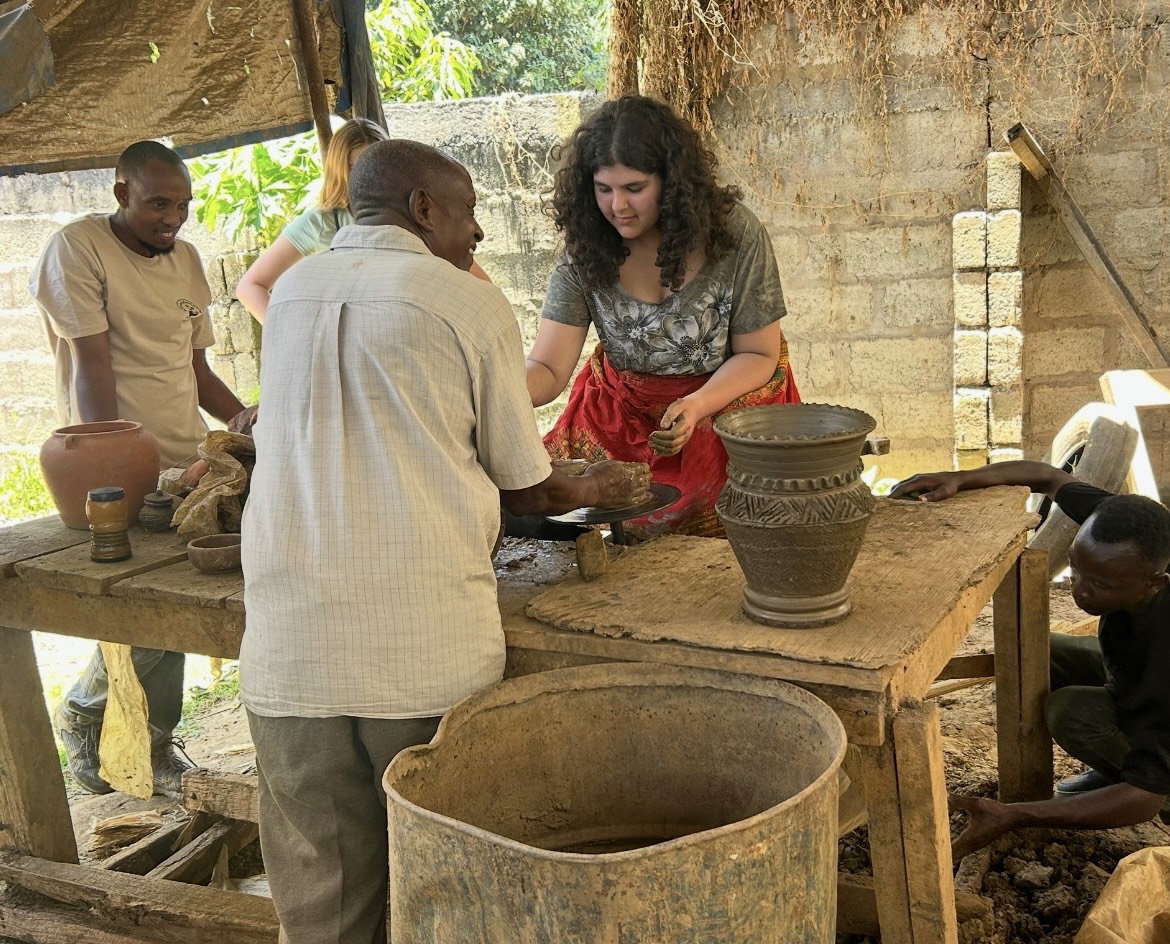By Jessica Berg ’27
Going on this journey has been one of the coolest and most enlightening experiences of my life. I’ve learned from this trip that the best way to form perspective is to submerge yourself in foreign cultures with an open mind. Seeing animals in the wild was a dream come true and the most fun I had along the trip, but visiting tribes, villages, and spending time with locals were the most meaningful moments I will take away from my time in Tanzania.
I’ve been able to learn so much about the direct dependence that wildlife has with the climate. For example, I visited Tanzania during what is supposed to be the rain season, but it was very apparent that there was no rain because of temperatures rising rapidly and drying out the land. While on safaris, I saw how this unnatural change impacted animal migration patterns, air quality, and plant growth. Furthermore, communities that depend on seasons for agriculture are being affected in their own ways. With seasons constantly changing due to climate change, farming becomes difficult and unpredictable, which in turn affects the economy that is built on agriculture.
After seeing the effects of climate change on innocent communities, it saddened me that so much of the world doesn’t understand why sustainability should be seen as a priority. Tanzania’s efforts to provide their wildlife with protection from the threats of negative human impact are effective because of the joint support for conservation that is shown from the government and many of the locals. This is largely what I believe is missing from climate change and sustainability efforts in the United States. While in Zanzibar, we learned that the three pillars that combine to create an environment are society, economy, and policy. I hope that when I return to my community in the United States, I can bring back this idea that conservation efforts can be successful in any community when built on a foundation supported socially, economically, and politically.
If I were to explain a major lesson that I’ve learned throughout this journey to a friend, it would be the relevance of individual efforts. Many Americans don’t attempt to contribute to a cause that they know is important because there is an idea that smaller efforts and sustainable practices won’t help in the grand scheme of things, because the problem is so much larger than imaginable. While I’m guilty of having these thoughts as well, this trip has really put into perspective how damaging that mindset can be, and that it is important to stay educated and aware of the impacts of climate change even if the individual solutions feel helpless.
Overall, this experience has strengthened my belief that there is no better education than a primary source. Tanzania is so much more than a vacation spot for tourists, it is a country so rich in culture and filled with indigenous tribes, villages, wildlife, and ecosystems all being affected by climate change in some way or another.
This article was originally published in Forman School's Fall 2025 Forman Letter magazine.





